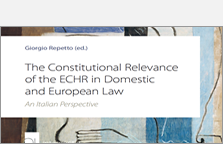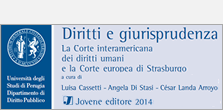Abstract
SOMMARIO: 1. Breve premessa. – 2. Il parametro di riferimento dell’art. 3 Cedu. – 3. Il possibile apporto della giurisprudenza nostrana.
- Breve premessa. – Che la legge n. 110/2017 istitutiva del delitto di tortura italiano fosse, da parte del nostro ordinamento, un “atto dovuto”, nessuno ne dubita. La mancanza di una tutela penale ad hoc per tale tipologia di condotte era, infatti, sotto gli occhi di tutti, oltre che rimarcata in più occasioni dagli organismi internazionali più autorevoli. Quello di cui si è dubitato, all’indomani dell’entrata in vigore della sopracitata legge, è stato della sua capacità di colmare, adeguatamente, quel vuoto di tutela ormai divenuto intollerabile .
Le perplessità suscitate dal testo del nuovo art. 613bis c.p. sono state molteplici e senza dubbio, «testualmente» fondate, tuttavia, tramite l’ausilio di una interpretazione, la più «Convenzionale» possibile, se ne potrebbe auspicare un loro cauto ridimensionamento.
D’altronde, il forte legame esistente tra il testo della norma incriminatrice di cui si tratta e l’attività giurisprudenziale della Corte EDU che della omonima Convenzione è, non solo immediato organo applicativo, ma anche, e per certi versi soprattutto, organo interpretativo, si ravvisa già nella stessa introduzione delle disposizioni penalistiche nostrane, la cui esistenza si deve sia alla (tardiva) esecuzione degli obblighi internazionali, sia (più efficacemente) alle condanne della Corte EDU inflitte all’Italia per la violazione dell’art. 3 Cedu. Come non menzionare la sentenza Cestaro c. Italia con cui la Corte di Strasburgo ha inferto all’Italia una sonora condanna, riscontrando la perpetrazione di veri e propri atti di tortura ad opera delle forze di polizia nella ormai nota e triste vicenda genovese. La Corte, con l’occasione, denunciava la necessità che l’Italia provvedesse al più presto ad introdurre una specifica norma incriminatrice “armata” di sanzione effettiva ed adeguata che fosse allineata alla definizione di tortura coniata in ambito internazionale. Non solo. Nella stessa pronuncia, si puntava il dito anche avverso l’effetto di impunità derivante dalla prescrizione, ciò che finiva per tradursi in una sorta di ulteriore ingiustizia patita dalle vittime .
[…]
If we consider that after more than thirty years since the ratification of the UN Convention on Torture of 1984, Italy has succeeded in carrying out the international obligations assumed only after the “ultimatum” launched by the Court of EDU in the Cestaro judgment is evident as the activities of the Court of Strasbourg played an important role in the “birth” of the torture crime in our penal code. The article focuses the possibility that the interpretive activity of art. 3 Cedu made by the same Court and also the internal jurisprudential activity carried out on homogeneous concepts to those contained in the art. 613bis c.p. can support a more reasonable interpretation of the legal text.













